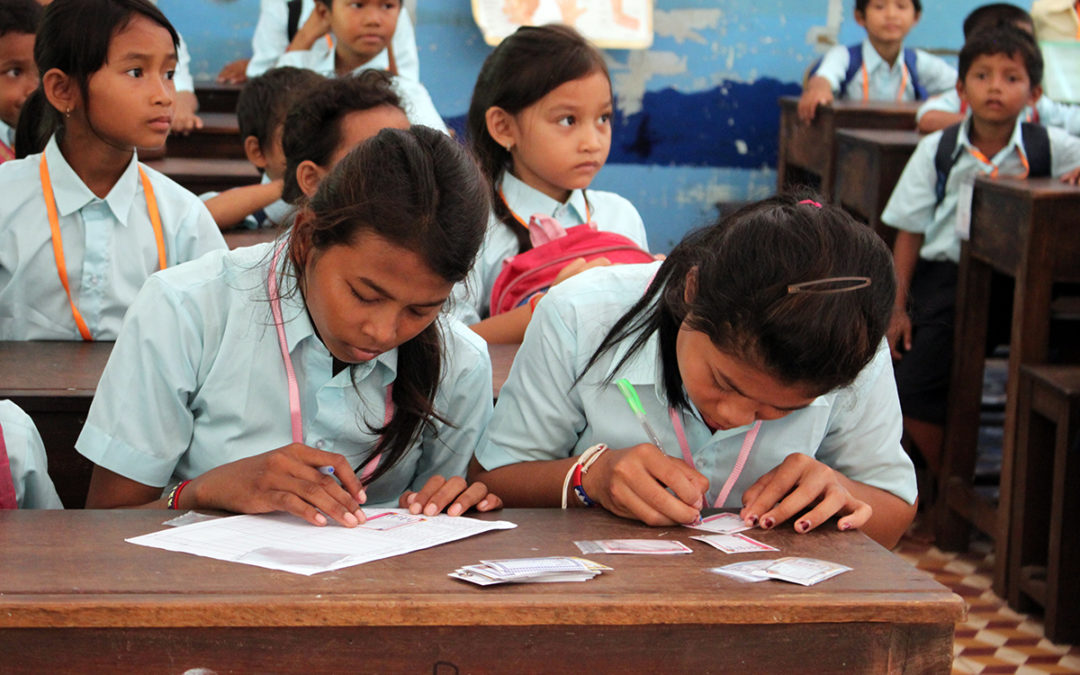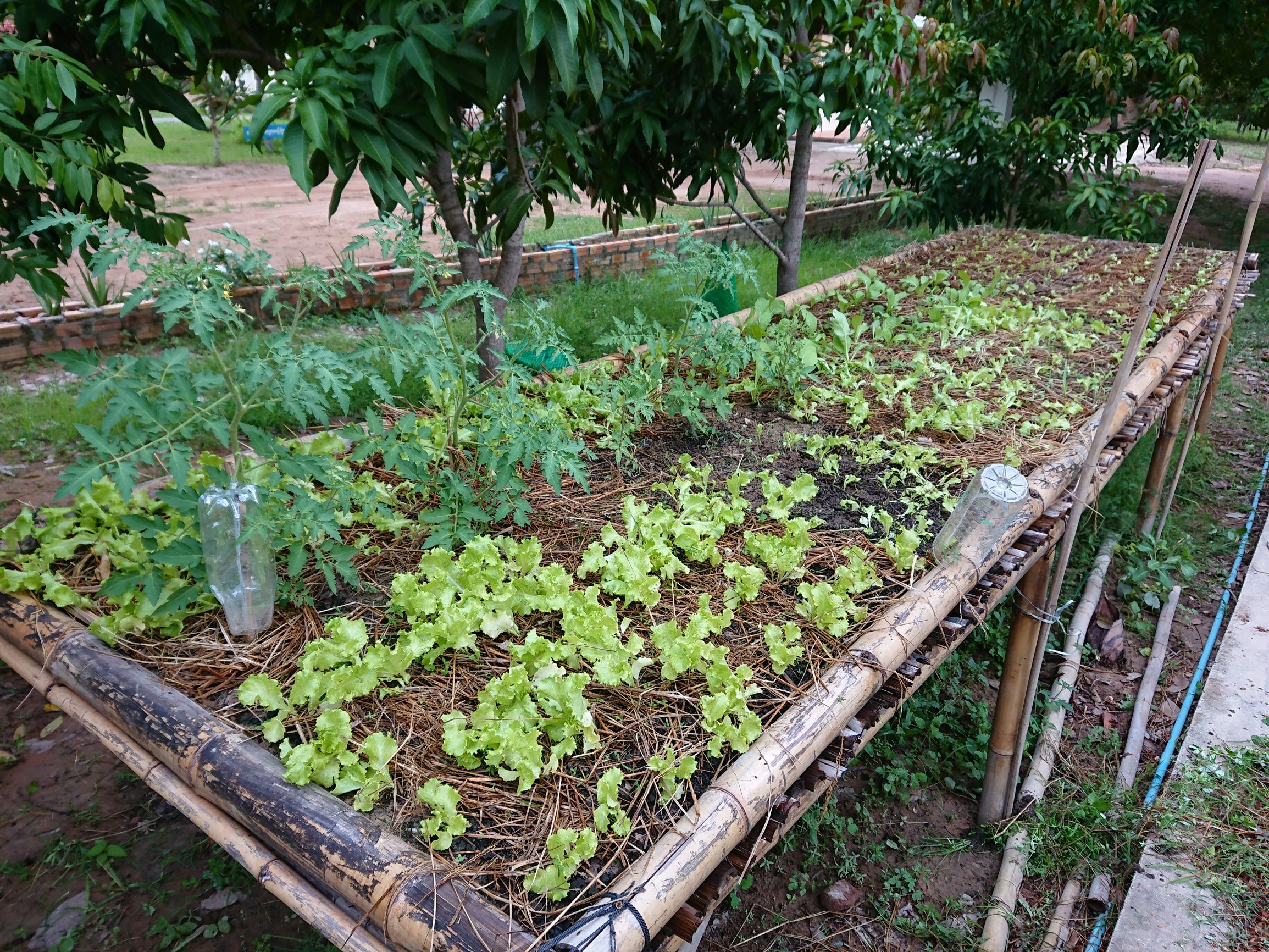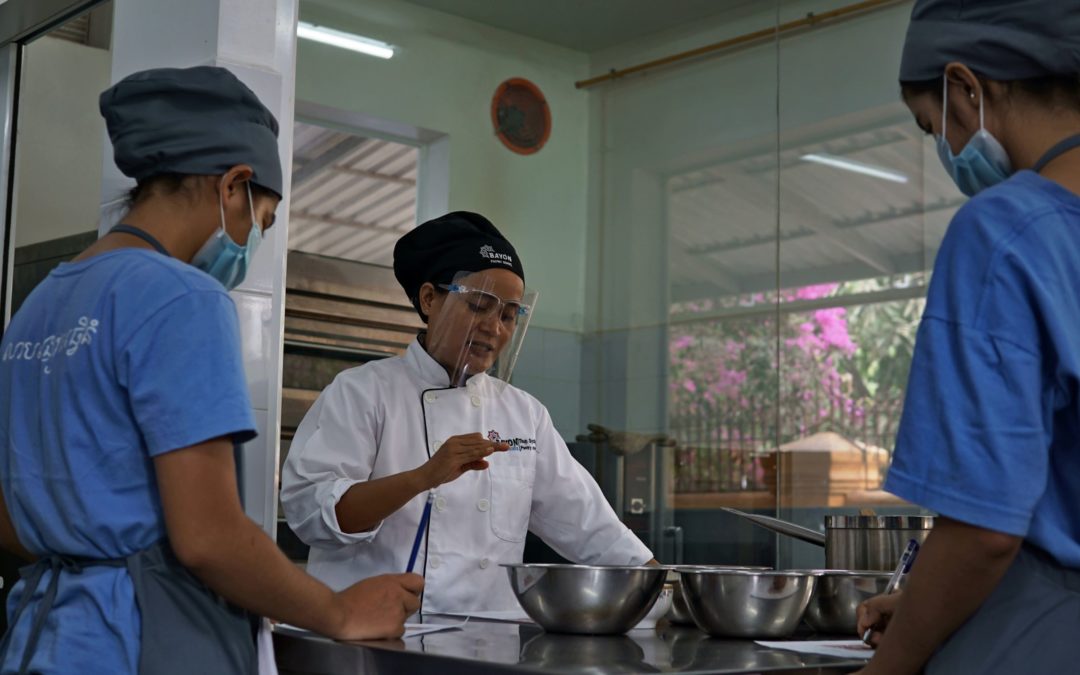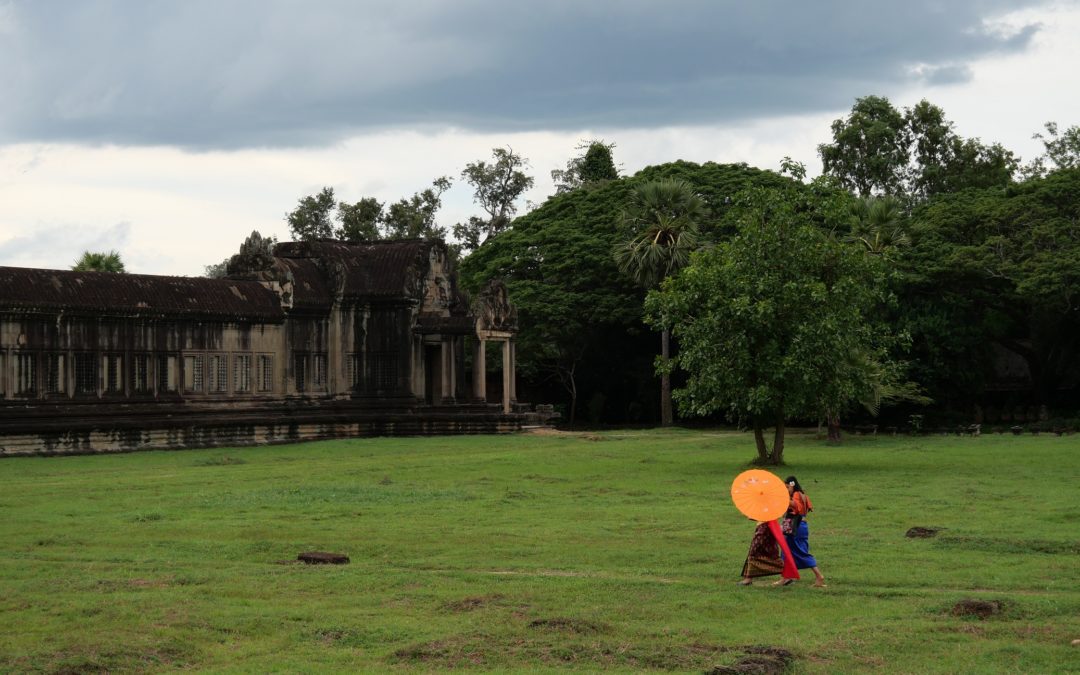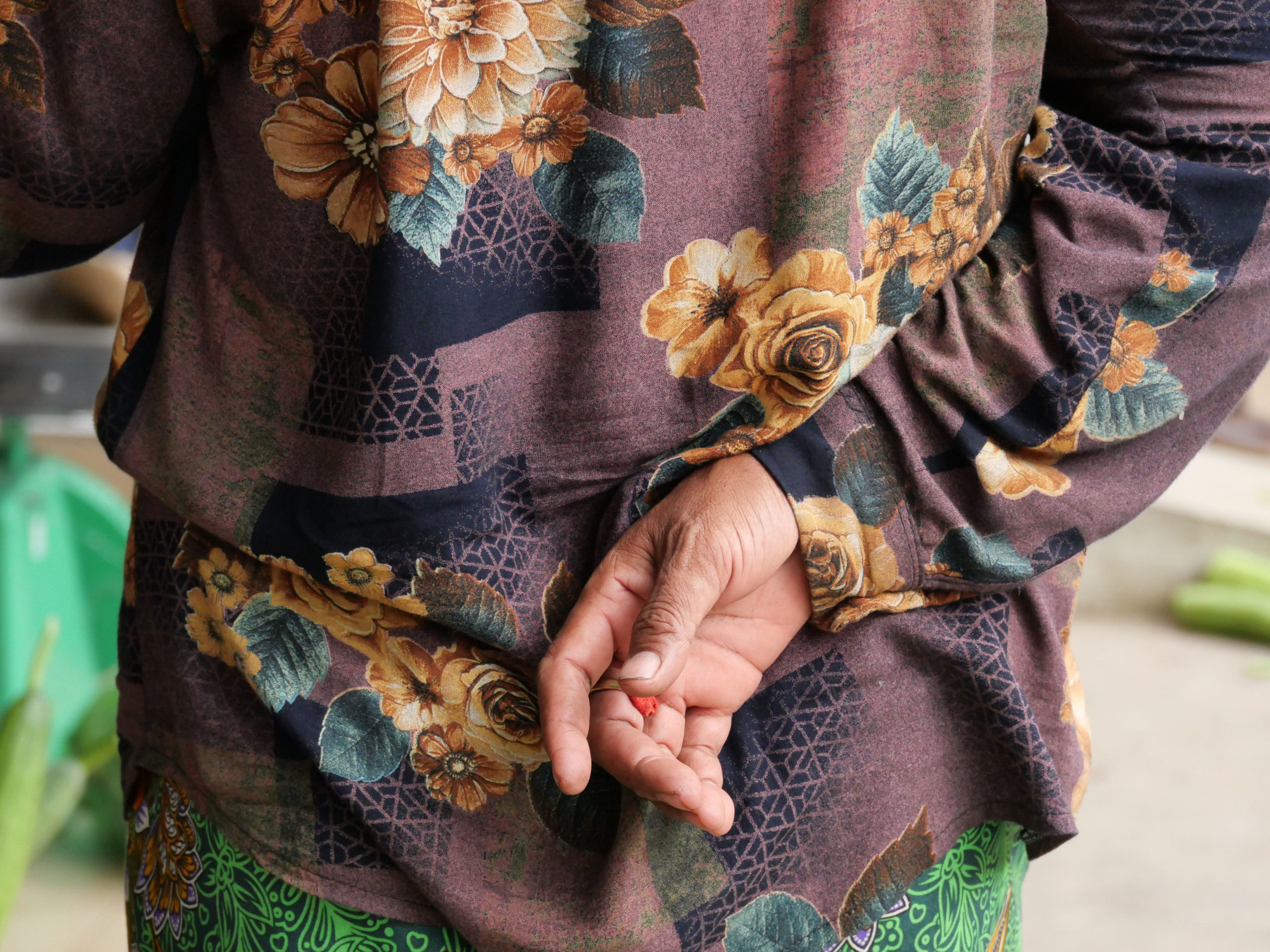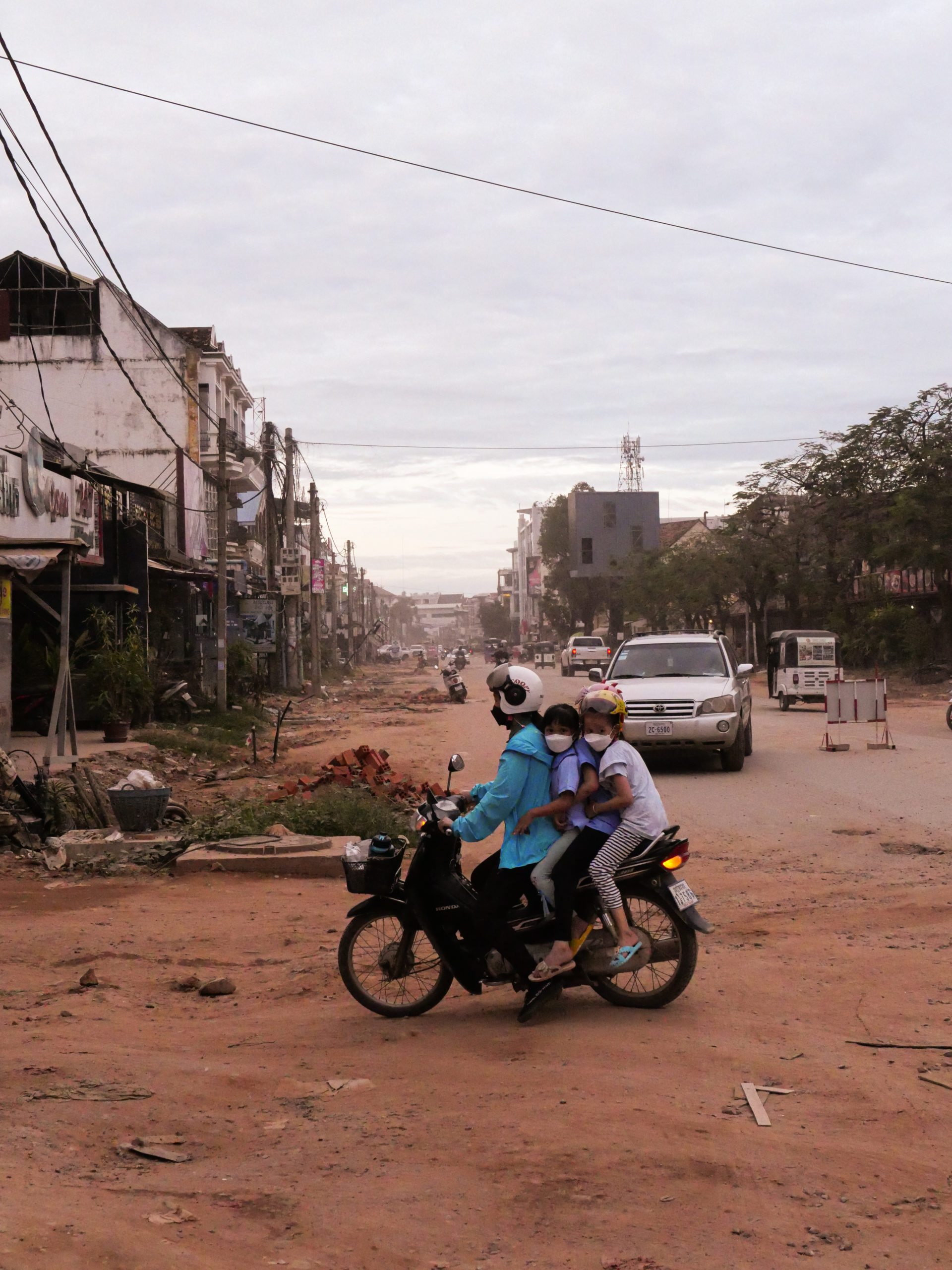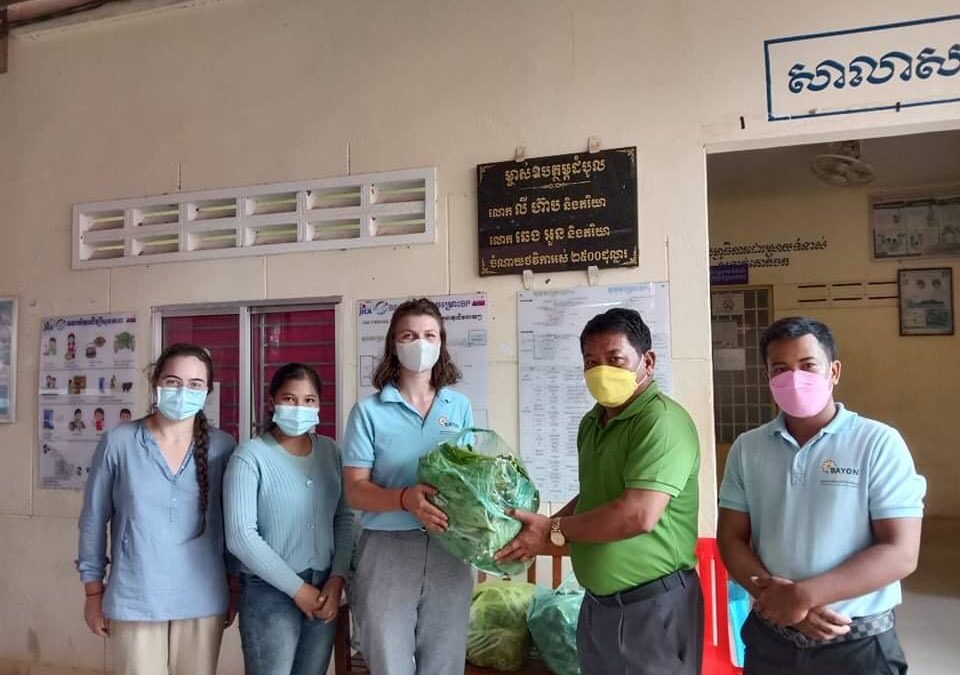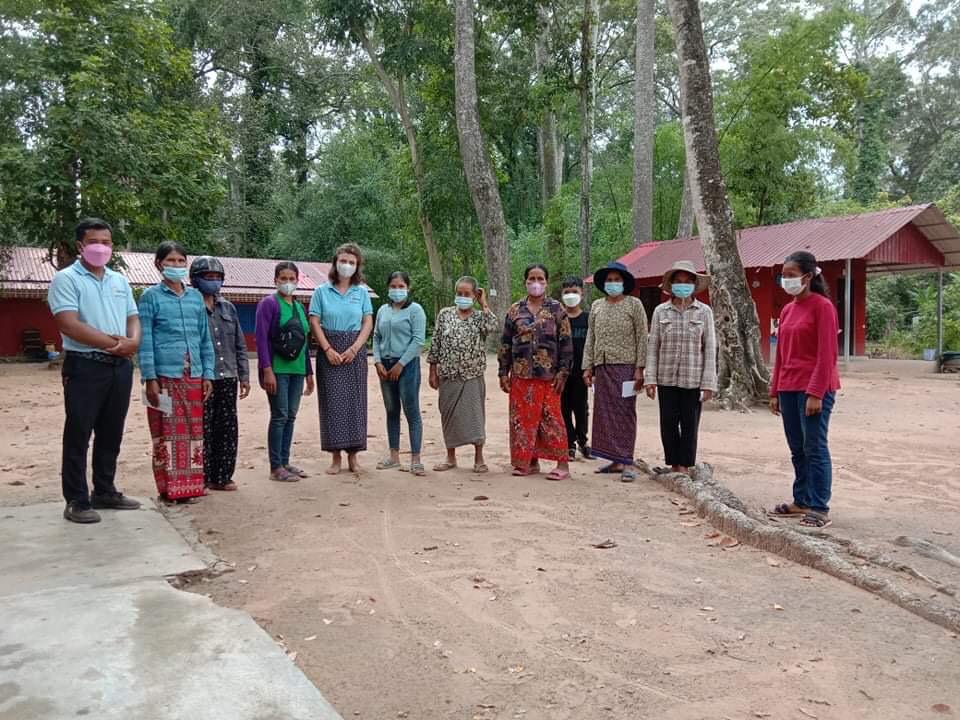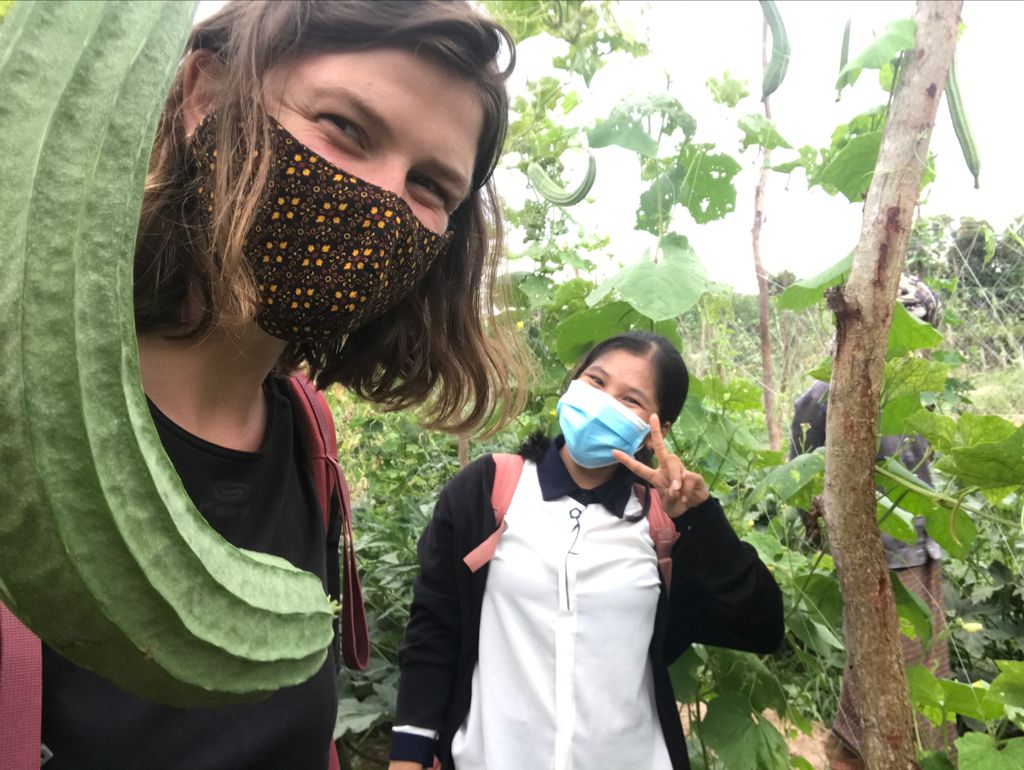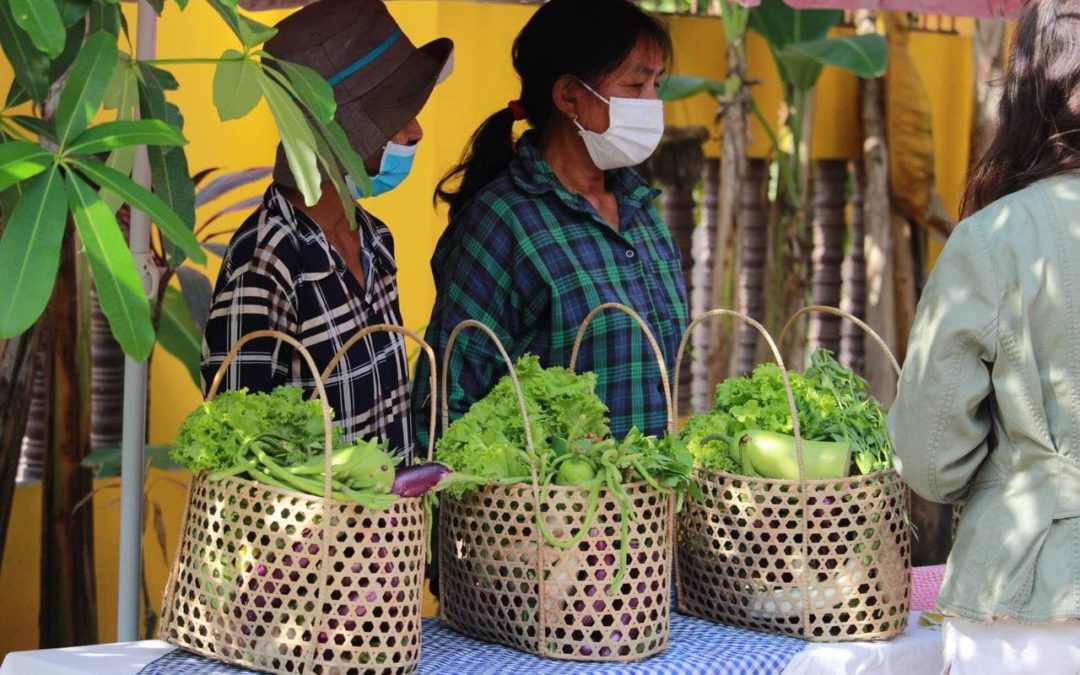
The Bayon farmers’ project is evolving: Towards the marketing of their vegetables!
Launched in 2018, the Potager project aimed to train primary school mothers in organic farming. Thanks to volunteers and members of Bayon, a dozen women have (re)learned to cultivate their garden. Eggplant, squash, tomatoes, chili pepper… Year after year, our farmers gain in skills and autonomy. They have seen their production increase and their living conditions improve. Since the beginning of the project, Bayon has been helping them to market their production.
This year, in order to provide them with additional income and to showcase their products, we launched the sale of baskets of their vegetables at the Coffee Shop of the Bayon Pastry School.
An intensive monoculture
According to the World Bank, Cambodia’s agricultural sector contributes 22% of the gross domestic product. Rice accounts for more than half of Cambodia’s agricultural products and makes Cambodia one of the top 10 rice exporters in the world. In contrast, Cambodian fruit and vegetable production meets only 30% of local demand. The rest is mainly imported from Thailand and Vietnam.
With a predominantly rural population (76.6% in 2018) and a third of its people living on less than $1 a day, Cambodia faces problems that European agriculture has faced before. Most farmers are smallholders cultivating less than 2 hectares of land per household.
In order to meet the growing demand and due to lack of knowledge of alternatives, most vegetables and fruits are grown intensively and with many chemical inputs. The massive use of these pesticides combined with the monoculture of rice, prevents the regeneration of soils and leads to a decrease in the yields of current products. The Minister of Agriculture is slowly beginning to take into account the challenges of intensive agriculture in Cambodia, but concrete solutions are not yet available.
The place of women in rural areas
In developing countries, women play a major role in managing their households and communities to provide food security and improve overall living conditions. Nevertheless, they face many difficulties, especially in terms of human rights and income equality. They have limited access to education and very little independence, which does not facilitate their evolution within society.
Rural women represent nearly 43% of the agricultural workforce. Unfortunately, these women farmers are considered “unpaid or contributing family workers“. They therefore have a much smaller source of income than men, which does not allow them to increase the yield of their farms. It is therefore important to rethink this financial system in order to meet the needs of these women who contribute fully to the life of their households and to enable them to become more emancipated.
The creation of the Vegetable Garden Project at the Bayon School
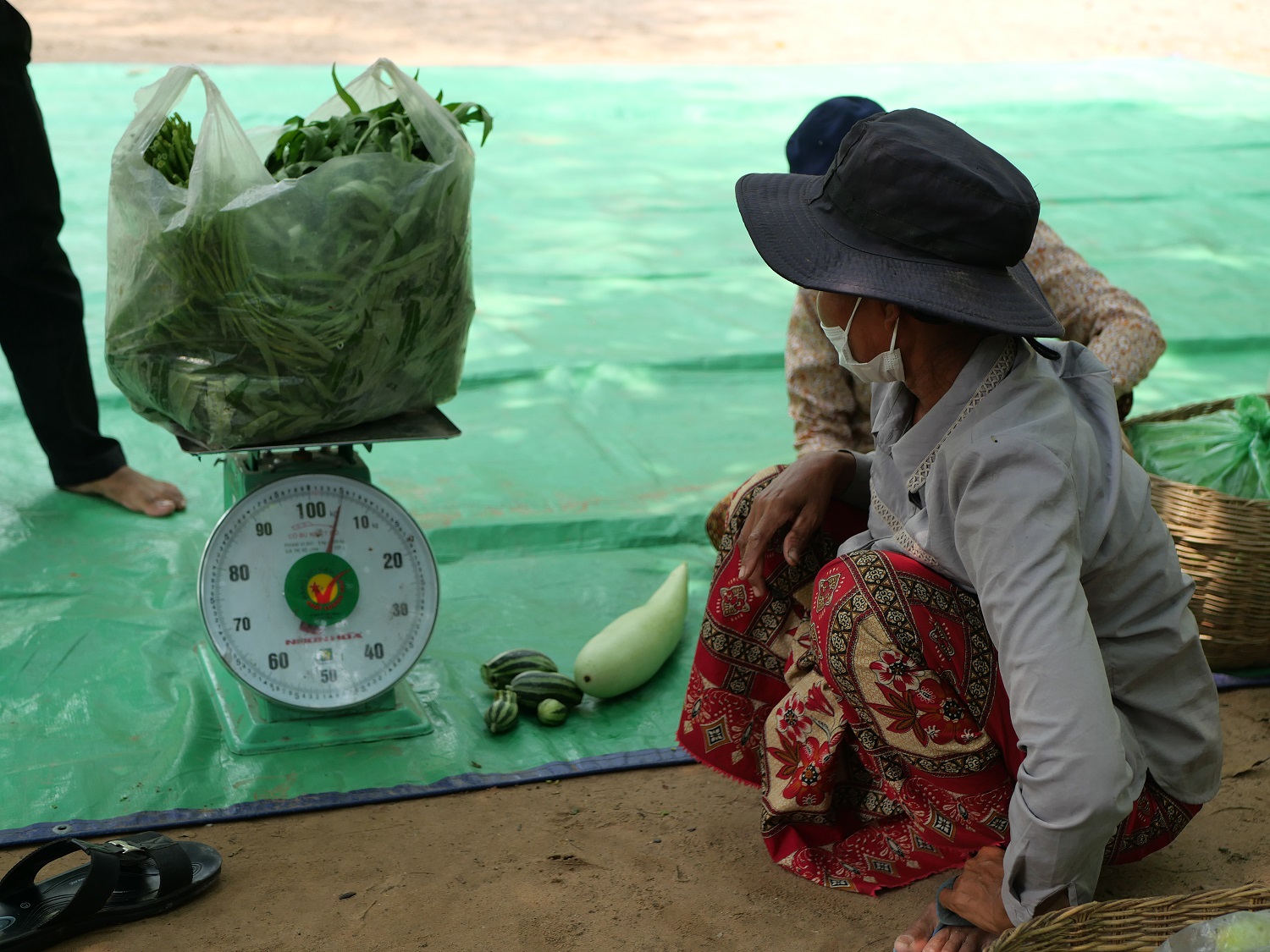
At the Bayon School, the transmission of the principles of agroecology to the families of the children attending our primary school seemed to us to be a viable and effective solution in the long term. That’s why, since February 2018, eleven vegetable gardens have been set up in the gardens of the families we support.
The initial objective of the creation of these vegetable gardens was to provide Élodie’s canteen (primary school canteen with 250 students at lunchtime) with locally grown and pesticide-free vegetables, while allowing the families to generate additional income. Bayon then set up vegetable distributions to help families during the Covid-19 outbreak and organized partnerships with supermarkets like Farmer Market.
In 2021, 17.6 tons of vegetables were sold. This represents a 35% increase over the previous year. This vegetable production generated $13,350 in revenue primarily from the vegetable distribution set up during Covid-19 (70%), the primary school and bakery canteens (20%), and the Farmer Market in Siem Reap (10%).
In August 2022, we will end food assistance, hoping that our families’ economic situation will have stabilized. It is therefore necessary to find other sources of income for our farmers.
One solution among others: Selling vegetable baskets
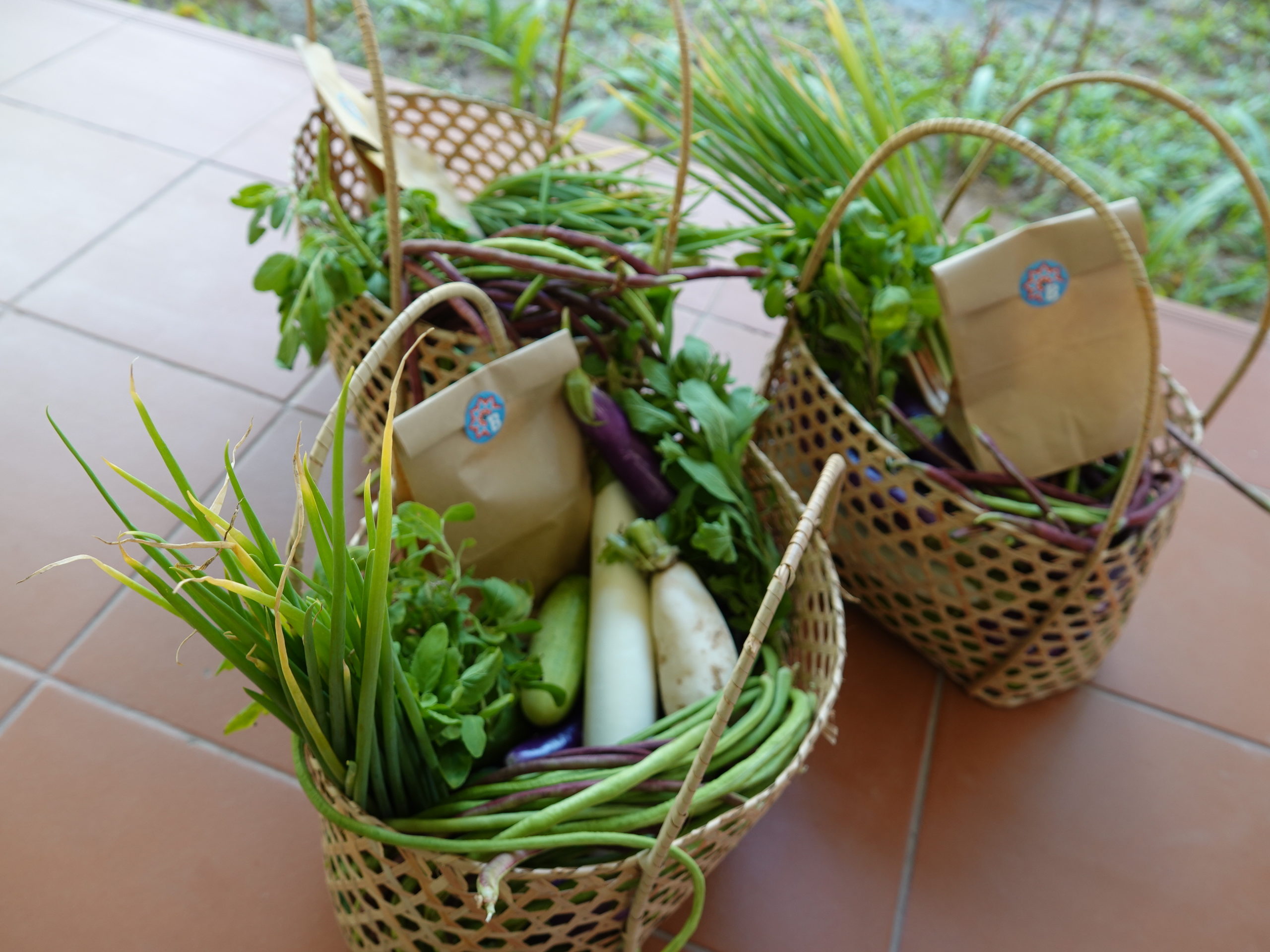
In order to diversify the sources of income, we set up on April 5, 2022, the sale of farmers’ vegetable baskets at the school’s Coffee Shop.
Each week, on Thursday, we open the basket orders according to the quantities produced by the farmers. Eggplants, long beans, zucchini, pumpkins, limes, peppers, tomatoes, radishes…
Each week the composition of the baskets changes according to the production. On Tuesday we receive the vegetables ordered at the Coffee Shop and our teams distribute the vegetables in the baskets. Guests have the option of adding the fresh bread of the week, prepared by our chef. They can pick up their basket at the Coffee Shop or have it delivered directly to their home.
The sale of baskets allows us to create a real synergy between the different projects of our school. By selling the baskets, it also provides an additional source of income and visibility to the coffee shop and thus helps finance part of the pastry training of our students.
The first orders were a real success. Customers ask for more and are happy to participate in our project, while buying products that are good for their health. This is a first phase towards the deployment of the farmers’ organic vegetable sales in Siem Reap’s supermarkets and restaurants.
So don’t wait any longer, reserve your vegetable basket and talk about it around you!
Written by Morgane Boudoul, communication officer at the Bayon School.
